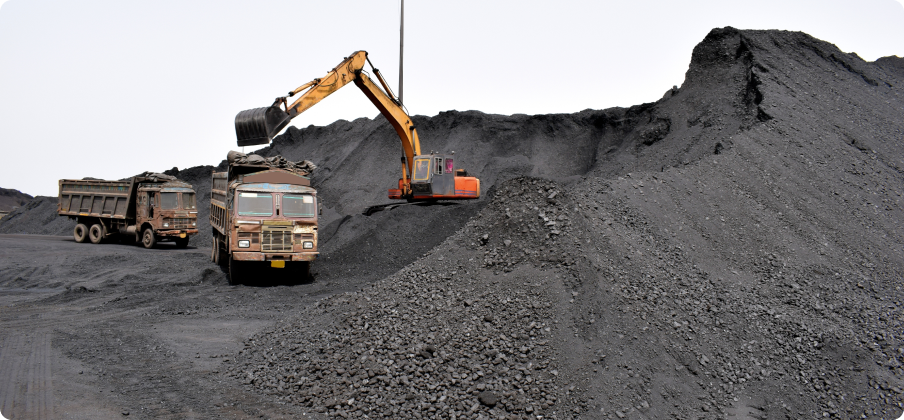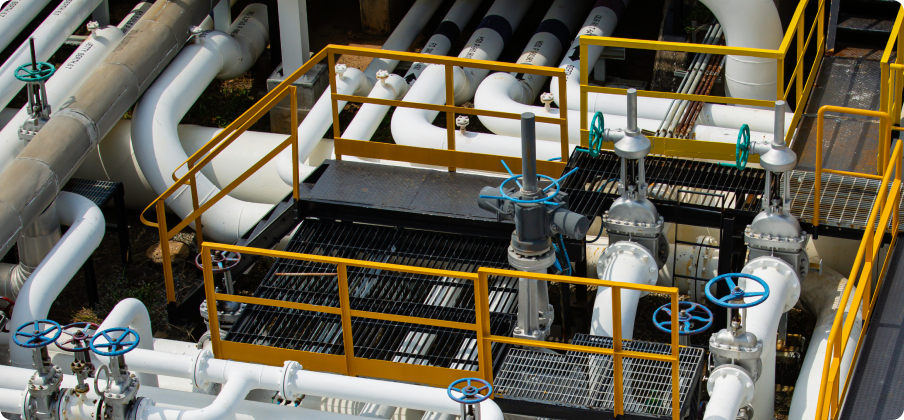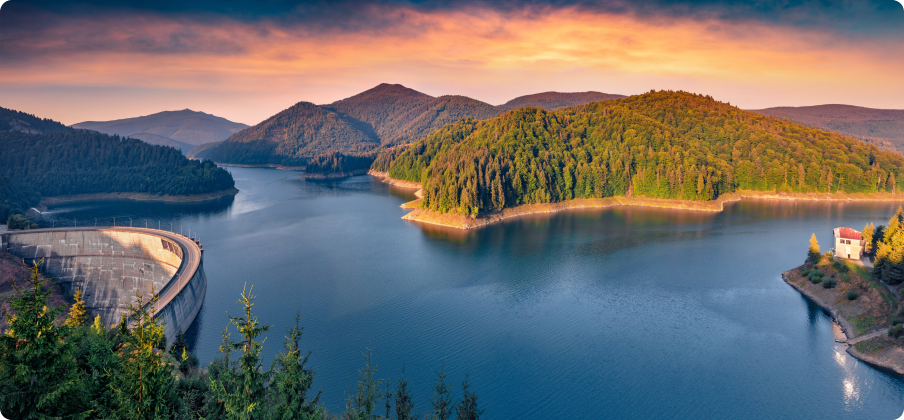Projects overview in Romania
Down below you will find detailed descriptions of ongoing CCUS projects in Romania, including their objectives, the technologies used, partnerships involved, and funding sources.
Past projects
The GETICA CCS (Carbon Capture and Storage) project in Romania was an ambitious initiative aimed at demonstrating large-scale integrated carbon capture and storage technology.

However, the project was never fully implemented. The GETICA CCS project was Romania's first carbon capture and storage project.
It aimed to capture CO2 emissions from an existing coal-fired power plant and store them underground. The project was centered at the Turceni Power Plant in Gorj County, Romania. It
focused on Unit 6 of the Turceni Power Plant, which had a capacity of 330 MW. The power plant was a base-load facility and a strategic electricity supplier to the Romanian National Power System.
The captured CO2 was to be transported using existing onshore natural gas pipelines where possible. The CO2 was to be stored in onshore deep saline formations within a 50 km radius of the power plant. The storage site was in the South West Development Region of Romania.
The project's planned start of operation was initially set for December 2015. By 2012, the project had completed its Feasibility Study and Storage Assessment. It had also applied for the NER300 Programme first round funding.
Despite these efforts, the project was eventually put on hold due to funding issues and was never fully realized. The project's value was estimated at 1 billion euros.
A Memorandum of Understanding was signed between Norway and Romania, providing financial support of €40 million for the project.
The project involved collaboration between Turceni Energy Company, Transgaz, and Romgaz. The power plant and adjacent lignite mines were part of the Oltenia Energy Complex, a state-owned company.
The GETICA CCS project was considered a priority for Romania in its efforts to reduce carbon emissions and it represented an important step in demonstrating the feasibility of CCS technology in the country and potentially in the broader region.
Despite the initial progress and significant planning, the GETICA CCS project faced financial and logistical challenges that ultimately prevented its implementation. The project remains a notable example of the complexities involved in large-scale CCS initiatives.
Current projects
OMV Petrom a anunțat un proiect inovator de captare și utilizare a carbonului (CCUS) care va fi testat la rafinăria Petrobrazi de lângă Ploiești, România, începând din iunie 2024.

Here are the key details of this project:
• The project is part of the ConsenCUS international initiative, funded by the European Commission through the Horizon 2020 program.
• It aims to demonstrate a new carbon capture and utilization technology applicable to industries where reducing carbon emissions is challenging.
The installation consists of three units:
• A CO2 capture unit using more efficient technology than traditional methods
• A unit for obtaining high-purity CO2
• A unit that converts CO2 into potassium formate, a chemical product with multiple uses, including the production of synthetic fuels
The tests at Petrobrazi will be conducted over a four-month period, starting in June 2024. This is part of a demonstration campaign carried out in three countries - Denmark, Romania, and Greece. The installation was previously tested successfully at a cement plant in Denmark.
The technology aims to capture CO2 from flue gases released by the Cogeneration unit at Petrobrazi. It supports OMV Petrom's strategy to actively contribute to the decarbonization of transport in Romania.
This project aligns with OMV Petrom's Strategy 2030, which includes investing about €11 billion by the end of the decade, with 35% dedicated to low and zero carbon projects. It's part of OMV Petrom's commitment to achieving net-zero operations by 2050.
The ConsenCUS project involves a consortium of 19 leading research institutions and innovative companies from various countries.
This CCUS project at the Petrobrazi refinery represents a significant step in OMV Petrom's efforts to reduce carbon emissions and develop sustainable energy solutions. It showcases the company's commitment to innovation and environmental responsibility in the energy sector.
Future projects
In the 2024 session of the Innovation Fund, Romania has demonstrated its commitment to advancing carbon capture, utilization and storage (CCUS) technologies by submitting two significant project proposals. These projects aim to harness innovative CCUS solutions to reduce carbon emissions and further solidify Romania's role in the European Union's transition towards a low-carbon economy.

Details on these projects are forthcoming, underscoring Romania's proactive approach in contributing to sustainable energy and climate initiatives on a continental scale.